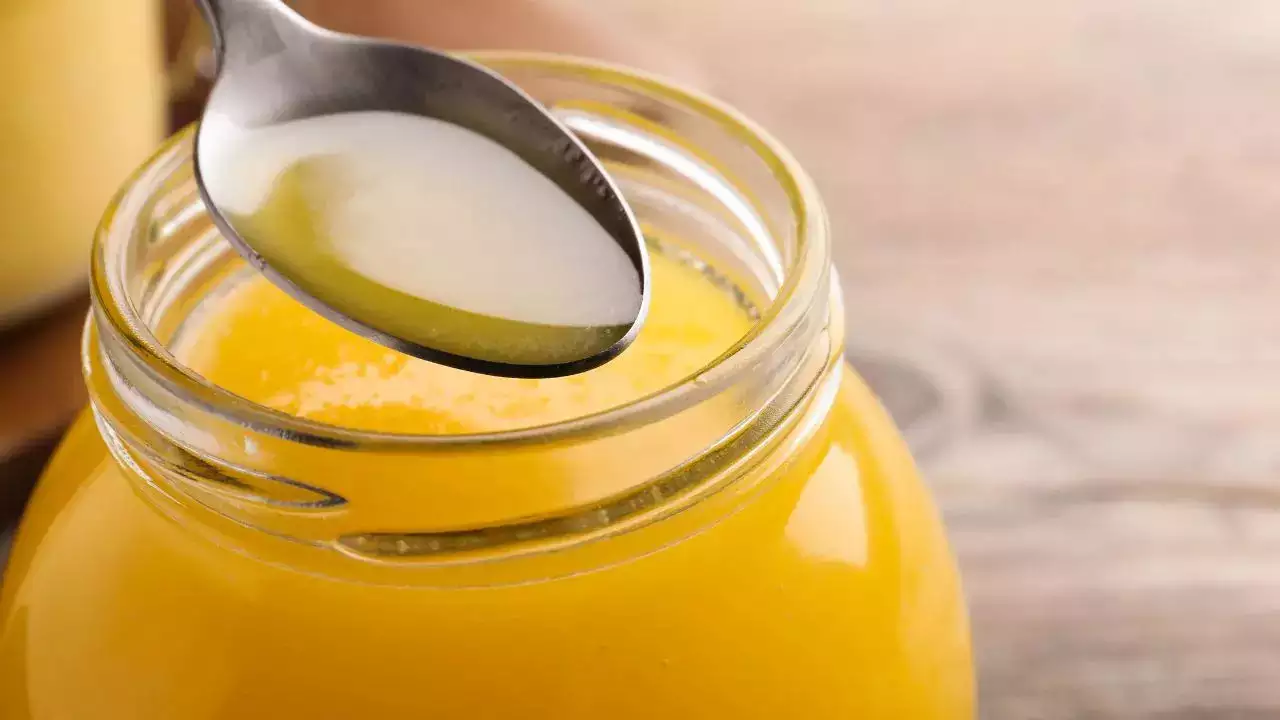
Desi cow ghee, also known as pure cow ghee, is a cherished staple in Indian households, celebrated for its rich flavor, health benefits, and its deep-rooted cultural significance. This golden, aromatic butterfat has been a part of Indian cuisine, wellness practices, and rituals for centuries. As people become more conscious about their health and wellness choices, the demand for high-quality desi cow ghee is witnessing a surge. But, like any premium product, desi cow ghee comes with its own price trends, which are influenced by several factors.
In this blog post, we will explore everything you need to know about desi cow ghee, its health benefits, the factors influencing its price, and the current trends in the desi cow ghee price.
What is Desi Cow Ghee?
Desi cow ghee comes from the milk of native Indian cow breeds, such as the Gir, Sahiwal, and Red Sindhi, which are known for their superior quality milk. Unlike regular ghee, which people make from the milk of any breed of cow, desi cow ghee exclusively comes from the milk of these indigenous breeds. The process of making desi ghee involves churning curd made from cow milk to extract butter. Then, people simmer the butter to separate the milk solids and water, leaving behind a pure, golden liquid.
This method, known as the “bilona method,” preserves the nutritional value and healing properties of the ghee. People often consider it superior in quality and taste due to the natural processes involved in its making.
Health Benefits of Desi Cow Ghee
Desi cow ghee is more than just a culinary delight; Ayurveda, the ancient system of Indian medicine, considers it a superfood. Here are some key health benefits people associate with desi cow ghee:
-
Rich in Healthy Fats: Desi cow ghee is an excellent source of medium-chain fatty acids (MCFAs) like butyrate, which are known for their anti-inflammatory and immune-boosting properties. It is also rich in omega-3 and omega-9 fatty acids, essential for heart health.
-
Improves Digestion: One of the most cherished benefits of ghee is its ability to aid in digestion. Desi cow ghee contains butyrate, a short-chain fatty acid that plays a vital role in maintaining gut health. It helps soothe the digestive tract, reducing bloating and promoting better absorption of nutrients.
-
Boosts Immunity: The antioxidants present in desi cow ghee, such as vitamin E and beta-carotene, help strengthen the immune system. It also contains antimicrobial properties that help the body fight infections.
-
Enhances Brain Function: The presence of omega-3 fatty acids and butyrate in desi ghee is linked to improved cognitive function, memory, and focus. These components also help in reducing the risk of neurodegenerative diseases like Alzheimer’s.
-
Supports Skin Health: The richness of vitamin A in desi cow ghee makes it an excellent natural moisturizer. It promotes skin health, providing hydration and reducing the appearance of fine lines and wrinkles.
-
Promotes Weight Loss: Contrary to the belief that ghee may lead to weight gain, studies have shown that when consumed in moderation, ghee can actually aid in weight loss. The MCFAs in ghee help in boosting metabolism and burning fat.
Desi Cow Ghee Price: Understanding the Trends
While desi cow ghee is revered for its multiple health benefits, it also comes with a price tag that often sets it apart from other types of ghee. The price of desi cow ghee can vary based on a multitude of factors. Understanding these factors can help consumers make informed decisions when purchasing this premium product.
1. Quality of Milk
The quality of milk used to produce desi cow ghee primarily determines its price. Native Indian cow breeds like Gir, Sahiwal, and Tharparkar produce milk known for its nutritional richness, which directly impacts the quality of ghee. Because farmers raise these cows in more natural environments and do not mass-produce them, the milk they produce costs more, which makes the resulting ghee more expensive.
Moreover, the method of making desi cow ghee—such as the traditional bilona method—requires more time and effort, further contributing to the higher price point. As a result, when you buy desi cow ghee, you’re not just paying for the milk but also the meticulous craftsmanship involved in its production.
2. Packaging and Brand Reputation
Another factor influencing desi cow ghee price is packaging and brand. Many premium brands use glass containers or environmentally friendly packaging, which costs more than plastic. Furthermore, brands that have built a reputation for producing high-quality, pure desi cow ghee often charge a premium for their products. These brands often source milk from trusted, organic farms and ensure that the ghee is free from chemicals, preservatives, and artificial additives.
3. Production Scale and Availability
Desi cow ghee is typically produced in smaller quantities compared to commercial ghee. This small-scale production, along with limited availability of milk from indigenous cows, contributes to the higher cost. Additionally, the rising demand for organic and natural products has led to a supply-demand imbalance, pushing up prices.
4. Geographical Location
The price of desi cow ghee may also vary depending on the geographical location and local market dynamics. In rural areas, where these cows are often raised, the price may be lower due to the proximity to the source. However, in urban areas or regions where desi ghee is not readily available, prices tend to be higher due to transportation costs and the need for sourcing from distant locations.
5. Organic Certification
Organic desi cow ghee comes from the milk of cows raised on pesticide-free grass and feed. People often price it higher due to the certification process and the costs involved in maintaining organic practices. Organic certification ensures that the ghee is free from chemicals, hormones, and antibiotics, which can be a significant concern for health-conscious consumers.
Current Trends in Desi Cow Ghee Price
As of recent years, there has been a steady rise in the price of desi cow ghee, mainly driven by the growing awareness of its health benefits and the increasing demand for organic and natural food products. Prices can range from INR 500 to INR 2000 per kilogram depending on the factors mentioned earlier.
For instance:
-
Premium Brands: High-end, organic desi cow ghee from well-known brands can cost anywhere between INR 1200 to INR 2000 per kilogram.
-
Local or Lesser-known Brands: Desi cow ghee from local producers may cost between INR 500 to INR 1000 per kilogram, though the quality may vary.
Conclusion
Desi cow ghee is undoubtedly one of the most nutritious and versatile food products, known for its multiple health benefits. While its price may be higher than that of regular ghee, the value it offers in terms of health, flavor, and authenticity is unmatched. Whether you use it for cooking, as a supplement for better digestion, or for skincare, desi cow ghee is a worthwhile investment. As demand for this golden elixir continues to grow, understanding the factors influencing the desi cow ghee price can help you make informed purchasing decisions while ensuring that you get the best quality ghee for your money.









